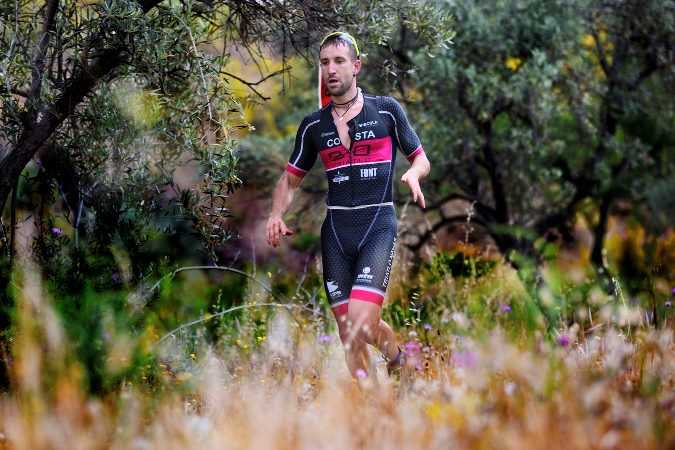Is it possible to combine sports activities with drinking alcohol? For example, can I have a glass of beer after my workout? Let’s find out.
Alcohol intake in relation to sports can be considered:
a) How is doping
b) As a restorative drug
c) As a pleasant time to spend
Surprisingly, there are still people who consider alcohol as a kind of doping. We exclude sports such as shooting, for there alcohol is really seen as a doping that reduces hand tremors).
In extreme sports it will help to overcome fear and play the role of a sedative. However, you will have to pay the price of coordination, with all that implies. It is absolutely unclear how intoxication by alcohol will help to run or swim, because it is not a stimulant.
Alcohol after Sports
As a restorative or isotonic drink, it would seem that drinking the same glass of beer after a workout seems more plausible. However, instead of providing us with important minerals: potassium, magnesium, phosphorus and calcium (which is what any isotonic should do), beer, on the contrary, will lead to an even greater loss of them. In any case, beer contains alcohol, which is an extreme toxin for the body and cannot contribute to recovery in any way.
Safe doses of alcohol, contrary to common standards (such as a glass of beer, 350 ml of wine or 100 grams of spirits), are actually much smaller and measured in droplets from a dropper. No one will consume it in such quantities, because they won’t even taste it. If such a word can be used for alcohol at all.
If we stick to the current views of science, there is only one thing to remember: in sports medicine, the concept of an acceptable dose of alcohol simply does not exist. Any ingestion of ethanol from the outside in any quantity is called intoxication and translates as “poison inside.
The microscopic amount of ethanol that the body produces on its own for some chemical reactions is nothing compared to our dinks, shots and pints.
The benefits of beer for an athlete
Beer contains some useful elements for the athlete, but to drink it for the sake of them is contrary to common sense. Because you can get all the same things from ordinary foods and save all the vital organs of the body, blood vessels, the nervous system and brain cells.
For example, to replenish the daily norm of the same lauded vitamin B with beer, you would have to drink not even one liter, but as much as six It is equivalent to almost three bottles of vodka, translated into ethanol! And after all we are talking about the real beer and not that powdery substitute which is proudly called beer now.
Compatibility of sports and alcohol
In general, strictly speaking, alcohol and sports are about as incompatible as sports and smoking. Everything from hypoxia to dehydration is incompatible with training and recovery.
Drinking alcohol for the sake of intoxication is the exception rather than the rule for active people. In general, most recreational athletes have no craving for alcohol for the simple reason that for them pleasure and relaxation are achieved through training. Whereas alcohol only creates the appearance of relaxation, but in fact, contributes to the development of inner tension and often leads to depression.
Relaxation and true rest, accompanied by an unreasonable pleasure of being, come after physical activity. This is nature’s way of doing things.
The artificial similar state caused by ethanol, which consists merely in the compression of the blood vessels of the brain and in a reduction in the supply of oxygen to it due to clumped red blood cells – hypoxia, appears as a second-rate substitute for the natural feeling of happiness, leading directly not to mental balance and peace of mind, but to dullness and degradation.
Unfortunately, only the sober independent mind sees all the illusory pleasure of drinking alcohol. The probable hangover syndrome that follows, which serves as a clear indicator of the destruction of the body and at all rejects the desire to drink a glass or two.
In addition to all of the above, the breakdown products of ethanol are extremely detrimental to muscle fibers. Being a fierce enemy of tendons, alcohol promotes pro-inflammatory (inflammatory) processes and seriously increases the risk of tendonitis.
Nevertheless, there are athletes who promote, for example, beer as an indispensable elixir for athletes. In this case there is a simple ignorance, a banal craving for alcohol (beer is excellent for this and reinforces the craving) or a commercial background.
That’s not to say that a glass of real beer on a day off will do you any catastrophic harm. No, it wouldn’t. But you should not assume that it helps you in terms of nutrition and recovery either.
Among the runners, cyclists and triathletes who regularly sip beer between workouts and competitions, there are some pretty famous names, which can definitely incline you to do the same. But the high results were achieved not at all because of drinking beer or wine, but in spite of it.
Running with a hangover
Is it possible to train with a hangover? In short, of course not. You shouldn’t exercise after drinking alcohol. And where did the need to run in this state come from all of a sudden? But if good reasons are needed to refuse to run with a hangover, it is worth knowing that the heart muscle is most affected by the toxic effects.
The Benefits of Wine for the Athlete’s Heart
It may be noted that proponents of the usefulness of wine for the cardiovascular system listen to anyone, but not scientists who are directly related to chemistry, biology, anatomy and physiology.
Otherwise, they would know that the direct toxic effects of alcohol on the myocardium, combined with changes in nerve regulation and microcirculation, are the basis of alcoholic damage to the heart muscle. Developing this gross disorders of intratissue exchange lead to the development of focal and diffuse myocardial dystrophy, manifested by heart rhythm disturbances and heart failure.
The contractility of the heart is also seriously impaired by severe disturbances in mineral metabolism, once the “heart-healthy” drink has entered the bloodstream.
For those who have not yet understood the main point, let us decipher: any alcoholic beverage, even one that suddenly contains substances beneficial to the athlete’s body, continues to be a deadly poison as long as alcohol is present in it. But would you drink your very healthy wine if it had no alcohol in it?
Why is this topic relevant at all in an advanced civilization
A scientist-chemist or biologist should know such a definition, which, in time, has gone somewhere:
“Alcohol is a narcotic neurotropic protoplasmic poison, which belongs to the drugs of the first difficulty group.”
This definition of alcohol was kept in Soviet times, but later, with someone’s light anti-scientific hand, it was superseded by the expression “food product. This is where it all began.
Even the provision of the World Health Organization, that only a substance that is absolutely harmless to humans can be called a food product, was drowned out in the wave of illegal legalization of liquid drugs. Rivers of dough flowed into the savvy anti-scientific hands and into the hands of the state, allowing even more sophisticated control over the desires and choices of the willless drunken crowd.
In the first stage of recruiting young people into the circles of future alcoholics, the zombie TV came in handy. It clearly demonstrates that the only happiness in the world is to drink a shot and then have a hangover. And smoke, of course. In order for the squirrels to keep turning the wheel, nothing else is needed: the nature of the drug itself will work next. Drunken society itself will breed and cultivate its own kind and bring them up in accordance with its worldview, or rather with its complete absence.
One does not have to go far to find examples: all over the Internet you can find discussions on completely ridiculous topics. For example, is it possible to trust a person if he does not drink or even smoke at all? And in general, what is wrong with him? Yes, yes, these questions are asked in all seriousness. There are no mild words to describe this kind of “civilization,” which calls itself highly developed, and 90% of whose representatives are completely devoid of the simplest self-analysis.
It’s also bad enough that people who are perceived as authorities (most often actors, singers, etc.) carry blatant agitation from the screens and pages of their blogs to join the guild of drinkers. Not all, of course. Some, on the contrary, ask to come to their senses. But, for the most part, alcohol is the muse of theater and film. No one buys these people’s opinions, there is no such conspiracy and there is no need for one. All of them have long been sitting on the hook themselves and are simply trivial alcoholics, defending “their” point of view, but in fact their drink, which they have long hated, but without which they cannot.
The only problem is the younger generation, like a sponge absorbing “recipes of happiness” from the celebrity, but not seeing what is really going on behind the scenes.
These same drinking actors and others also actively like to participate in discussions about non-drinkers. And, more often than not, one hears that people who do not drink according to their convictions repulse them and are quite unpleasant. But then they immediately notice that this does not apply at all to teetotalers who have been forbidden to drink by their doctor because of an illness. Does that sound like nonsense? Absolutely.
The point is that this is a psychological trick. The main feelings that are present here are envy and fear. Envy of someone who is able not to drink and does not experience deprivation, but on the contrary, feels a level of happiness that is inaccessible to the alcoholic. This envy and impossibility to be the same gives rise to anger, which is fueled by permanent fear, which is the norm of an addict’s life.
Long-term treatment is needed here, including psychological treatment. Remember this the next time you hear such talks, interviews, and broadcasts and be lenient with them.
Talks about “reasonable” doses of alcohol, designed to protect the “moderate drinker” of wine or beer from the humiliating title of alcoholic should not be taken seriously either. As a rule, they are all far from the truth.
Scientists, “concerned” with the health of mankind and understanding the psychology of people, have repeatedly tried to fight the term “abuse” by pointing out its incorrectness. After all, there should always be healthy doses as a counterbalance to abuse. However, this has nothing to do with alcohol: any dose is evil.
In modern world practice, no sports doctor would advise an athlete to take a dose of alcohol on his chest for any purpose. In their right mind, of course. And to the next myths about the miraculous benefits of alcohol for athletes or, more often, for ordinary people, real scientists and doctors have nothing to do.









